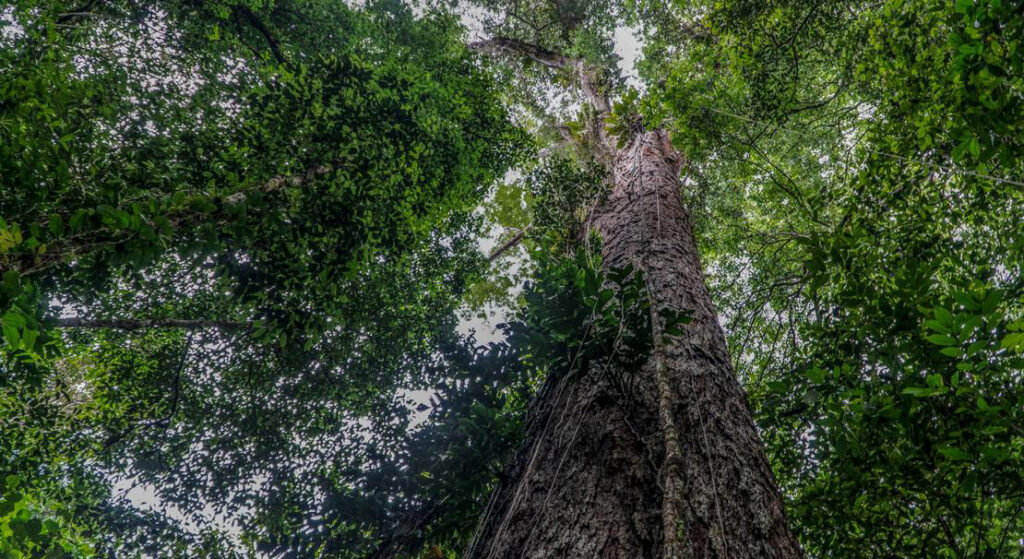
KUCHING (Oct 14): Sarawak is a step ahead of all states in Malaysia in terms of its carbon trading policies and regulations, according to Bursa Malaysia’s Voluntary Carbon Market (VCM) handbook.
The VCM Handbook, which is a collaborative effort between Bursa Malaysia and the Malaysian Green Technology and Climate Change Corporation (MGTC), was released recently as a guide designed to assist entities keen on participating in carbon market project development and Malaysia’s voluntary carbon market.
According to the handbook, few states have developed policies and regulations related to carbon trading.
“Among the states, Sarawak is considered the most advanced in this area and has enforced the law on carbon trading. Sabah is currently in the process of formulating its law, while Pahang is amending its existing enactment to accommodate carbon trading.
“States like Terengganu, Johor and Kelantan are actively engaged in the reducing emissions from deforestation and forest degradation plus (REDD+) programme and in exploring the possibilities of aligning their state-level carbon trading policies and regulations with the guidelines provided by the federal government,” it said.
In a report, Kenanga Investment Bank Bhd’s research team (Kenanga Research) pointed out that based on the handbook, Sarawak is the most advanced as it is the only state that has amended its laws to enact legislation on permitting carbon storage and nature-based venture businesses; the Land (Carbon Storage) Rules, 2022, and Forests (Forest Carbon Activity) Rules, 2022.
“Sarawak is also the first state to have legislation that enables industries, including oil and gas, to comply with international requirements to reduce CO2 emissions intensity under the UN Framework Convention for Climate Change,” it added.
Nevertheless, it pointed out that much still needs to be done to further encourage and boost the VCM market nationwide.
The research team noted that the Bursa Carbon Exchange (BCX), which was launched recently, is taking several steps to boost the trading of carbon credits.
BCX has enabled off-market trades of carbon credits as part of BCX’s continuous efforts to attract participation and improve the prospects of the voluntary carbon market.
Two standardised contracts are currently being offered GTC contracts at RM8.80 per contact, focusing on global technology-based greenhouse gas (GHG) reduction projects, and GNC contracts at RM34.50 per contact, which feature global nature-based GHG reduction projects with co-benefits in the agriculture, forestry and other land use (AFOLU) sector.
The bulk of the trades was transacted during the first two days which saw 16,500 Verra-registered carbon credits (contracts) changing hands involving 10 companies from various industries. Another 80 contracts were transacted in subsequent trading days (up till October 12, 2023).
“However, much remains to be done to encourage participation and convince Malaysian companies and organisations of the viability of the voluntary carbon market as evidenced by the lacklustre market activities. Natural Resources, Environment and Climate Change (NRECC) Minister Nik Nazmi Nik Ahmad, who officiated BCX’s inaugural Carbon Market Forum, expressed his disappointment over the lack of interest in Malaysia’s voluntary carbon market (VCM).
“He called on Malaysian corporates to translate their net zero commitments into concrete actions by stepping up and investing in the carbon market in tandem with Malaysia’s efforts to address the impact of climate change.
“Nevertheless, the bright spot is the participation of smaller companies in the off-market trades which signalled the growing awareness of environmental responsibility among small and medium-sized enterprises as Malaysia shifts towards a low-carbon economy.
“This could spell better prospects for the development of local carbon credit projects,” it said.
It also pointed out that one area that is severely lacking is financing.
“There is no framework for financing the development of carbon credit projects at the national or state levels. Neither is there any approved financial institution listed in the VCM directory. Financing remains a major barrier, especially for small and mid-size project developers.
“The most common financing methods now are forward purchase agreements (forward contracts) and own funding. Forward contracts are considered key to scaling up the VCM,” it said.
“Thus far, NRECC has introduced the REDD Plus Finance Framework (RFF) as a sustainable financing mechanism. REDD Plus means reducing emissions from deforestation and forest degradation with additional forest-related activities that include sustainable management of forests and the conservation and enhancement of forest carbon stocks in developing countries.
“There are two RFF financing mechanisms; the Forest Conservation Certificate (non-market based) and the Forest Carbon Offset (market-based). The agency responsible for implementing the RFF is the Malaysia Forest Fund (MFF),” it added.
Source: The Borneo Post

